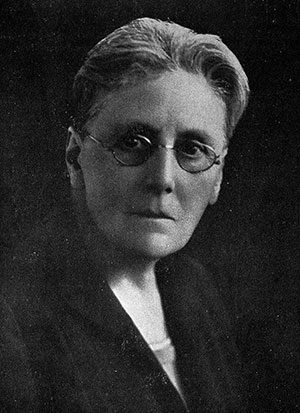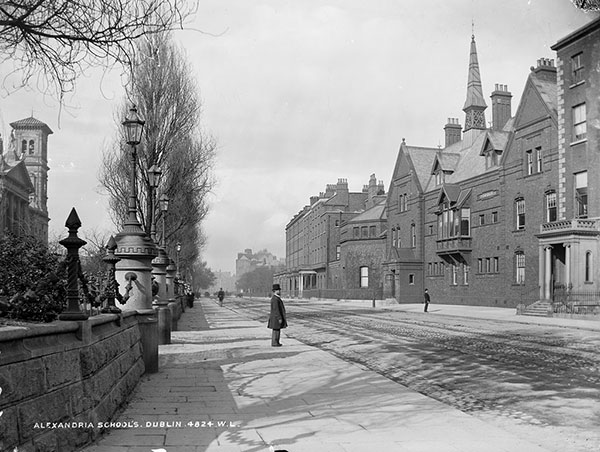New book celebrates pioneering Alexandrans
Published in Issue 1 (January/February 2017), News, Volume 25
Ethel Bentham
While the characters featured in the book have all merited an entry in the Dictionary of Irish Biography, many may not be familiar to the wider public, yet their contributions are significant and it is quite the roll-call. The number and wide range of pioneering Alexandrans is a tribute to the role the school played in the reform of girls’ education in Ireland in the nineteenth century, its history being bound up with the changing role of women in Irish society. Those featured include Louie Bennett and Helen Chenevix, prominent suffragists and trade unionists; Molly Bagot Stack, founder of the Women’s League of Health and Beauty; and cartoonist and republican Grace Gifford.
Delving deeper into some of the biographies gives an indication of the knowledge that can be gleaned here. Take Anne Jellicoe (1823–80), for example. A pioneer of women’s education and founder of Alexandra College itself, Anne was fortunate enough to receive a good education owing to her father’s background in education. When at 23 she married and moved to Offaly, she opened up a lace and embroidery factory, providing employment for local women. It was through this venture that she became concerned with improving working conditions for women. But it was after she was widowed in 1862 that she really became immersed in the endeavour. She prepared a critical paper on the condition of women working in factories, which was read at the National Association for the Promotion of Social Science. In 1862 she was invited to a social science meeting in London to read her paper ‘Woman’s supervision of women’s industry’.

Above: The original Alexandra College at Earlsfort Terrace, Dublin, founded in 1866.
Anne became concerned about the lack of formal education received by middle-class women in Ireland, and in 1866, along with Richard Chenevix Trench, she founded Alexandra College. Modelled on Queen’s College, London, which had proven to be a success, Alexandra had the support of Trinity College, which provided lectures. The College became the first university-style institution for women in Ireland, and subsequently, in 1873, it was founded as a ‘feeder’ secondary school for girls. Before her death in 1880 Anne was active in the successful campaign to extend the Intermediate Education Act to girls’ schools, which paved the way for the admission of girls to higher education in Ireland.
One of the early attendees of the College was Ethel Bentham (1861–1931). Born in London, Ethel spent her formative years in Dublin, where her father was a JP. She developed an interest in social work at a young age after accompanying her mother on charitable visits to Dublin’s slums. This interest in social work led her down the path to a pioneering medical career. She became a student at the London School of Medicine for Women and went on to take the licentiate in midwifery at the Rotunda Hospital, Dublin (1893), licentiates in Edinburgh and Glasgow (1894) and the MD degree in Brussels University (1895).
After working as an assistant medical officer to the Blackfriars Provident Dispensary for Women and Children, and as a clinical assistant at the New Hospital for Women (both in London), she went into general practice in Newcastle-upon-Tyne. During her time there she was an active suffragist and became an executive committee member of the National Union of Women’s Suffrage Societies. After joining the Labour Party in 1902, she was its first successful female candidate in a municipal election in Newcastle in 1907. After moving to Kensington, she continued in general practice and worked for a time at the Royal Free Hospital. After several attempts, she was elected Labour MP for Islington East in 1929. At her insistence, the Baby Clinic and Hospital, North Kensington, was founded in 1911. She became its senior medical officer, and at the time of her death in 1931 she was still working there as a consultant medical officer.
These are just snippets about two of the pioneers included in this book, which features participants in the political revolution of 1916–21, those who through literature, art, music and theatre were part of the cultural revolution, and others who were prominent in the movements for social reform and women’s rights.
Ronan Fanning (ed.), Pioneering Alexandrans (Lilliput Press, €25 hb, 208pp, ISBN 9781843516804).
















